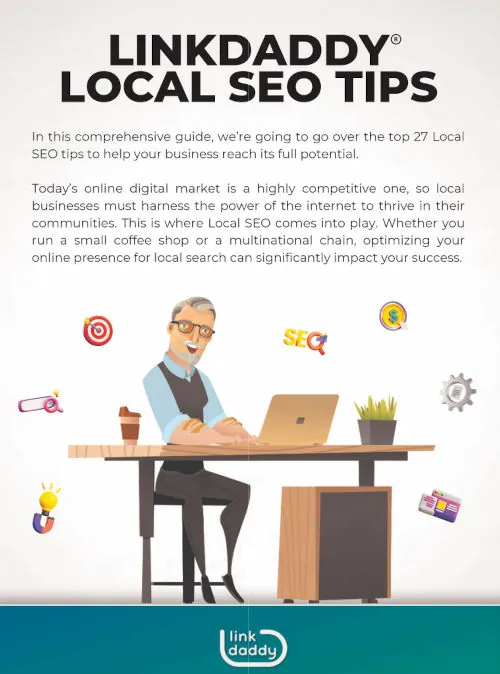
When it comes to online marketplace landscapes, search engine optimization (SEO) plays a crucial role in helping businesses stand out from the competition. Whether you are a small retailer or a large e-commerce platform, optimizing your product listings can significantly impact your visibility and sales. In this blog, we will delve into the importance of SEO for online marketplaces and provide you with insights on how to optimize your product listings on e-commerce platforms.
First and foremost, let’s understand what SEO for online marketplaces entails. SEO for e-commerce platforms is the process of improving the visibility and ranking of product listings on search engines like Google and Bing. By implementing various optimization strategies, businesses aim to attract more organic traffic, boost sales, and enhance their overall online presence. With the ever-increasing competition in the e-commerce industry, having a strong SEO strategy can make a significant difference in attracting potential buyers and converting them into loyal customers.
Optimizing product listings on e-commerce platforms is essential for several reasons. Firstly, it ensures that your products are easily discoverable by your target audience. When shoppers search for specific items on search engines or within the marketplace itself, having a well-optimized product listing increases the chances of your items appearing at the top of the search results. This increased visibility translates into higher click-through rates and ultimately more sales for your business.
Optimizing product listings enhances the overall user experience. By providing accurate and detailed product information, high-quality images, and clear specifications, you are creating a seamless and satisfying shopping experience for your customers. This, in turn, helps build trust and credibility, increases customer satisfaction, and encourages repeat purchases.
Now that we understand the importance of optimizing product listings on e-commerce platforms, let’s give you an overview of the blog structure. In the upcoming sections, we will discuss various optimization techniques that you can employ to improve your product listings’ visibility and sales. We will cover topics such as keyword research, compelling product descriptions, image optimization, customer reviews, and more. By the end of this blog, you will have a comprehensive understanding of how to effectively optimize your product listings and drive your business towards e-commerce success. So let’s dive in!
Understanding the Online Marketplace Landscapes
When it comes to selling products online, choosing the right e-commerce platform is crucial. The online marketplace landscape is vast, with popular platforms like Amazon, eBay, and Shopify dominating the industry. We will provide a brief overview of these e-commerce platforms, compare their SEO practices, and discuss the importance of selecting the right platform for your products.
Amazon is the largest e-commerce platform globally, with millions of sellers and an extensive customer base. It offers a range of features and tools for sellers, including product listing optimization, advertising options, and fulfillment services. Amazon has its own search algorithm, known as A9, which determines product rankings based on factors like sales volume, customer reviews, and relevance. Optimizing your product listings with relevant keywords, high-quality images, and compelling descriptions is essential to improving visibility and sales on Amazon.
eBay, on the other hand, focuses more on individual sellers and unique products. It allows sellers to auction their products or offer them at a fixed price. SEO on eBay revolves around using relevant keywords in the product title, description, and item specifics. Additionally, customer feedback and ratings play a significant role in building trust and attracting potential buyers on eBay.
Shopify is a popular e-commerce platform that allows businesses to create their own online stores and sell products directly to consumers. While Shopify provides flexibility and customization options, it also requires sellers to drive their own traffic and implement SEO strategies. Optimizing product pages, using relevant keywords, and creating engaging content are crucial for improving visibility and attracting customers on Shopify.
When it comes to SEO practices, each e-commerce platform has its own set of guidelines and strategies. However, some SEO best practices are universal. These include using targeted keywords in product titles and descriptions, optimizing images with alt tags, providing clear and concise product information, and building high-quality backlinks to your store.
Choosing the right platform for your products depends on various factors, including the type of products you sell, your target audience, and your business objectives. Amazon is great for reaching a wide customer base and leveraging its powerful search algorithm. eBay is suitable for unique and rare products, while Shopify offers flexibility and customization options for businesses looking to build their own brand.
Understanding the online marketplace landscape is crucial for success in e-commerce. Each platform has its own strengths and SEO practices, and choosing the right one for your products can significantly impact your online visibility and sales. By optimizing your product listings and choosing the platform that aligns with your business goals, you can maximize your chances of success in the competitive online marketplace.

Best Practices for Optimizing Product Listings in the Online Marketplace Landscapes
Optimizing product listings is an essential component of SEO for e-commerce. By implementing best practices, you can enhance the visibility of your products, attract more customers, and increase conversions. In this blog, we will discuss five key tips for optimizing your product listings effectively.
1. Importance of keyword research and optimizing product titles: Conduct thorough keyword research to identify the terms and phrases that potential customers are using to search for products like yours. Incorporate these keywords strategically in your product titles to improve visibility and increase your chances of ranking higher in search results. Ensure that your titles are concise, descriptive, and include relevant keywords.
2. Utilizing product descriptions to improve visibility and conversions: Product descriptions are an excellent opportunity to provide detailed information about your products and convince potential customers to make a purchase. Optimize your product descriptions by including relevant keywords naturally, highlighting unique selling points, and providing accurate and comprehensive information. Well-crafted descriptions not only improve visibility but also help potential customers make informed buying decisions.
3. Incorporating high-quality images and videos for an enhanced user experience: Visuals play a pivotal role in the online shopping experience. Include high-quality images and, if possible, videos that showcase your products from different angles and highlight their features. Use descriptive filenames and alt tags with keywords to optimize images for search engines. By providing a visually appealing and informative experience, you can increase engagement and boost conversions.
4. Leveraging customer reviews and ratings for better search rankings: Customer reviews and ratings have a direct impact on the visibility and trustworthiness of your products. Encourage satisfied customers to leave reviews and ratings, and ensure that you respond to both positive and negative feedback. Positive reviews can help improve your search rankings, increase customer confidence, and drive more conversions.
5. Tips for improving product categories and attributes: Properly categorizing your products and providing accurate attributes can significantly improve your product listings’ visibility and usability. Ensure that you choose the most relevant and specific category for each product and fill in all available attributes. This not only helps search engines understand your products better but also makes it easier for customers to find what they’re looking for.
By following these best practices, you can optimize your product listings and improve your e-commerce SEO. Remember to conduct thorough keyword research, optimize your titles and descriptions, incorporate high-quality visuals, leverage customer reviews, and provide accurate category and attribute information. Implementing these tips will help enhance your online visibility, attract more potential customers, and drive conversions.
Technical SEO Considerations in the Online Marketplace Landscapes

When it comes to improving your website’s visibility and overall ranking on search engine results pages, technical SEO considerations play a crucial role. These considerations involve optimizing various technical aspects of your website to ensure it is easily crawled and indexed by search engines. In this article, we will focus on some key technical SEO considerations that can help improve your website’s performance.
One of the first technical aspects to consider is optimizing your URL structures and permalinks. Creating concise and descriptive URLs can make it easier for search engines to understand the content on your webpage. By including relevant keywords in your URL, you can improve the chances of your page ranking higher in search results.
Moreover, mobile responsiveness and page speed are critical factors that can greatly impact your website’s performance. With the increasing use of mobile devices, it is important to ensure that your website is mobile-friendly and adapts well to different screen sizes. Additionally, fast-loading webpages not only provide a better user experience but also perform better in search engine rankings.
Schema markup is another powerful tool to improve your website’s SEO. By implementing schema markup, you can provide search engines with additional information about your content, such as ratings, reviews, and other structured data. This helps search engines better understand and display your content to users, potentially increasing click-through rates.
To further aid search engines in crawling and indexing your website, it is essential to provide XML sitemaps. These sitemaps act as a roadmap for search engine bots, guiding them through all the pages on your website. By submitting your sitemap to search engines, you ensure that all your webpages are discovered and indexed.
Utilizing canonical tags can help avoid duplicate content issues, which can negatively impact your website’s SEO. Canonical tags indicate the preferred version of a webpage, especially when similar content exists on multiple pages. Search engines then consolidate the signals from the duplicate pages, ultimately enhancing the ranking potential of the preferred page.
Technical SEO considerations play a vital role in improving your website’s visibility and performance on search engine result pages. By optimizing your URL structures, ensuring mobile responsiveness and page speed, implementing schema markup, providing XML sitemaps, and utilizing canonical tags, you can enhance your website’s chances of ranking higher and attracting more organic traffic. It’s crucial to continually monitor and improve these technical aspects to stay ahead in the competitive digital landscape.
Off-page SEO Strategies for the Online Marketplace Landscapes
Having an online marketplace is essential for businesses to thrive. But being present online alone is insufficient. To truly succeed and stand out from the competition, businesses need to implement effective off-page SEO strategies. These strategies focus on enhancing your online marketplace’s visibility and domain authority outside of your website. Here are five key off-page SEO strategies for online marketplaces:
1. Encouraging backlinks and social media shares: Backlinks, or links from other websites pointing to your marketplace, are a crucial factor in improving your domain authority. Encouraging other websites and influencers to link to your marketplace can greatly benefit your SEO efforts. Additionally, social media shares can boost your online visibility and help drive more traffic to your marketplace.
2. Leveraging influencer marketing: Collaborating with influencers in your industry can significantly increase your online marketplace’s visibility. Influencers enjoy a devoted fan base of people who respect their advice and thoughts. By partnering with influencers and having them promote your products or marketplace, you can reach a wider audience and gain more credibility.
3. Importance of customer engagement and interaction: Engaging with your customers and encouraging interaction is not only vital for building customer relationships but also for improving your SEO. Search engines prioritize websites that have higher levels of customer engagement, such as comments, reviews, and social media interaction. Therefore, fostering an environment that encourages customer participation will greatly benefit your off-page SEO efforts.
4. Utilizing PPC advertising: Pay-per-click (PPC) advertising is a great way to increase your marketplace’s visibility and drive immediate results. By bidding on relevant keywords, your marketplace will appear at the top of search engine results, increasing the chances of attracting potential customers. While PPC is not an organic off-page SEO strategy, it can complement your overall SEO efforts and provide a significant boost in visibility.
5. Monitoring and analyzing competitor activities: Keeping an eye on your competitors’ off-page SEO strategies can provide valuable insights and enable you to make strategic optimizations. By analyzing their backlink profiles, social media strategies, and influencer partnerships, you can identify opportunities for improvement and implement effective off-page SEO tactics to stay ahead of the competition.
Implementing these off-page SEO strategies can help online marketplaces improve their visibility, domain authority, and overall SEO performance. By encouraging backlinks and social media shares, leveraging influencer marketing, prioritizing customer engagement, using PPC advertising, and monitoring competitor activities, businesses can enhance their online presence and attract more customers to their marketplace.

Summary
Sustaining success in online marketplaces requires ongoing and strategic SEO efforts. The key points discussed in this blog emphasize the importance of implementing off-page SEO strategies to enhance visibility, domain authority, and online marketplace performance. By encouraging backlinks, leveraging influencer marketing, prioritizing customer engagement, utilizing PPC advertising, and monitoring competitor activities, businesses can strengthen their online presence and attract more customers.
Off-page SEO strategies, such as encouraging backlinks and social media shares, play a crucial role in improving domain authority. Backlinks from reputable websites and influencers can boost credibility and increase traffic to the online marketplace. Additionally, engaging with customers and fostering interaction not only builds relationships but also improves SEO by indicating higher customer engagement levels.
Influencer marketing offers a unique opportunity to reach a wider audience and gain credibility. By partnering with influencers, businesses can tap into their loyal following and benefit from their recommendations and endorsements. This can significantly enhance the visibility and reputation of the online marketplace.
PPC advertising, while not an organic off-page SEO strategy, complements overall SEO efforts by providing immediate visibility and results. By bidding on relevant keywords, businesses can appear at the top of search engine results, driving more traffic and increasing the chances of attracting potential customers.
Furthermore, monitoring competitor activities and analyzing their off-page SEO strategies can provide valuable insights for improvement. By staying aware of industry trends, businesses can make informed decisions and implement effective off-page SEO tactics to stay ahead of the competition.
To succeed in the competitive world of online marketplaces, businesses must commit to ongoing SEO efforts. By consistently applying the strategies discussed in this blog, businesses can enhance their online marketplace’s visibility and domain authority, ultimately attracting more customers. Embrace the power of off-page SEO and watch your online marketplace thrive in the digital landscape.
Frequently Asked Questions
When choosing an e-commerce platform for your products, consider factors such as ease of use, scalability, and integration with other tools. Additionally, evaluate the platform’s features for product management, order fulfillment, and customer support. It’s also crucial to check if the platform aligns with your business model and target audience.
The most impactful SEO practices for product visibility in online marketplaces include keyword optimization in product titles, descriptions, and tags. Optimize product images with relevant alt text and implement structured data markup to provide search engines with additional information about your products. Additionally, encourage customer reviews and ratings, as they can positively impact search rankings and attract more customers.
To improve customer engagement and boost SEO efforts in online marketplaces, consider the following strategies: actively engage with customers through comments, messages, and reviews; encourage user-generated content such as customer photos and testimonials; provide detailed and accurate product information to enhance customer trust; and optimize product listings with relevant keywords and structured data. Additionally, leverage social media platforms to drive traffic to your marketplace listings and consider running promotions or exclusive deals to encourage customer interaction.









